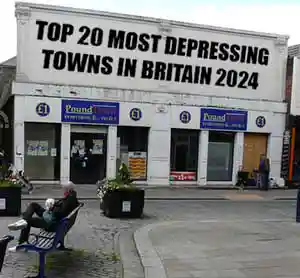There were a total of 12 street level crime incidents in Bourne End in March 2024. See where they were on the map below and broken down by categories. The largest category was Violent Crime, followed by Anti Social Behaviour.
Although violent crime represents the largest incidents category in Bourne End, this category is usually the largest in any urban area. This is partly because 'Violent Crime' covers so many offences compared to say Burglary| Crime Category | Incidents |
|---|---|
| Violent Crime | 5 |
| Anti Social Behaviour | 3 |
| Other Theft | 2 |
| Public Order | 1 |
| Burglary | 1 |
| All Crime | 12 |
Map of street level crime incidents in March 2024
Police data is divided in Policing Neighbourhoods. We have taken the 'best fit' neighbourhood that includes Bourne End. This map shows if incidents are evenly distributed over the district or if there are hot spots in certain streets or areas.
Where Police data is not specific to an address for privacy reasons, most roads are represented by 1 to 2 markers or clusters. However, this should be enough to ascertain if the road you live in or are thinking of moving to, is a crime hot spot. The only exception could be where there is a large cluster of a single crime category on a street, as this could but not necessarily be related to multiple incidents at one address.

Crime incidents in neighbouring areas to Bourne End
We've taken the ten nearest places to Bourne End and ranked them by the number of crime incidents in each. This should allow you to see if Bourne End has more crime than other surrounding areas.
| Location | Crime Incidents |
|---|---|
| Caulcott (2.24 miles) | 42 |
| Marston Moretaine (2.63 miles) | 42 |
| Lower Shelton (2.24 miles) | 42 |
| Hall End (2.56 miles) | 22 |
| Broad Green (0.88 miles) | 18 |
| Cranfield (1.39 miles) | 15 |
| Gossard’s Green (0.62 miles) | 14 |
| Bourne End | 12 |
| Up End (2.56 miles) | 0 |
| Little Crawley (2.56 miles) | 0 |
of Wootton (Bedford) residents were born outside of the UK, according to the 2021 Census
Where are the most violent places near Bourne End?
The category of crime that most concerns people is violent crime. We have taken the ten nearest place to Bourne End and ranked them according to the number of violent incidents in the 'best fit' Policing neighbourhood.
| Location | Violent Incidents |
|---|---|
| Caulcott | 11 |
| Marston Moretaine | 11 |
| Lower Shelton | 11 |
| Hall End | 10 |
| Broad Green | 8 |
| Cranfield | 7 |
| Gossard’s Green | 6 |
| Bourne End | 5 |
| Up End | 0 |
| Little Crawley | 0 |
How likely are you to be a victim of crime in Bourne End?
Every two years the government publishes the Index of Multiple Deprivation. One of those domains is crime, more precisely, how likely you are to be the victim of a what is known as 'personal crime', such as muggings or burglary. The governemnt publish these statitsics down to the Lower Super Output Area (LSOA) or in simple geographic terms, a few roads. These statistics are also published on a ward level as an average of the LSOAs in that area. We have taken the average rank and converted it into a more accessble form, a score out of 100. Where the higher the score, the more likely you are in Bourne End to be a victim of personal crime. Note that the following score has been generated from the 2019 statistics. At the time of writing, these have not been updated by the government during and since the COVID 19 pandemic.
How does crime in Bourne End compare to surrounding wards?
We have taken the 10 nearest wards to Bourne End and ranked them using our crime score based on the Index of Multiple Deprivation average rank for the ward. Bourne End is ranked #9.| # | Ward | Score |
|---|---|---|
| 1 | Kempston North | 58 |
| 2 | Kempston West | 55 |
| 3 | Kempston Central and East | 52 |
| 4 | Houghton Conquest and Haynes | 41 |
| 5 | Kempston South | 40 |
| 6 | Monkston | 31 |
| 7 | Kempston Rural | 29 |
| 8 | Cranfield and Marston Moretaine | 21 |
| 9 | Wootton | 21 |
| 10 | Wilshamstead | 20 |
| 11 | Olney | 16 |
Which road in Bourne End has the highest level of crime?
We have used the Index of Multiple Deprivation to find the Lower Super Output Area (LSOA) in Bourne End with the highest crime score. Accoding to the 2019 statistics, that is in and around Sherwood Close.

Information provided by data.police.uk
Published under the Open Government Licence v3.0

